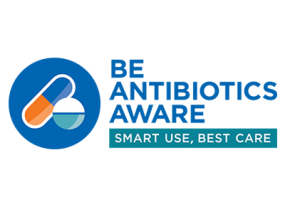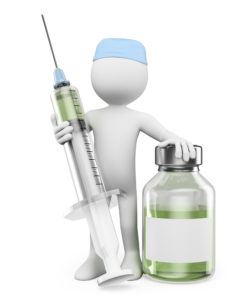WiRED Releases Diphtheria Modules
Disease Exhibiting Antibiotic Resistance
By Allison Kozicharow; Edited by Jessie Crowdy
Diphtheria — a disease generally easy to prevent and nearly eradicated globally — is making a comeback because of its growing resistance to antibiotics — although antibiotics are still the go-to treatment of choice.
WiRED International now offers two diphtheria modules: one for general audiences and one for health professionals. The modules describe diphtheria, its causes, transmission, risk factors, signs and symptoms, complications, diagnosis, treatment, prevention and vaccination.
 Diphtheria, an infection caused by the bacterium Corynebacterium diphtheriae, spreads easily and occurs quickly. The illness usually affects the nose and throat and causes a thick covering to develop in the back of the nose or throat that can lead to difficulty breathing, heart failure, paralysis and even death.
Diphtheria, an infection caused by the bacterium Corynebacterium diphtheriae, spreads easily and occurs quickly. The illness usually affects the nose and throat and causes a thick covering to develop in the back of the nose or throat that can lead to difficulty breathing, heart failure, paralysis and even death.
Diphtheria is spread by a person who has the infection and coughs or sneezes. Infection also can occur by coming in contact with an object, such as a toy, that has the bacteria on it.
Vaccines can prevent diphtheria, and inoculation is recommended for infants, children, teens, and adults. The disease rarely occurs in developed countries where health officials have been vaccinating children against the condition for decades. However, diphtheria is still common in underserved countries where immunization rates are low and other risk factors exist such as poor sanitation and malnutrition. Unfortunately, routine vaccination efforts have been widely disrupted by the COVID-19 pandemic.
The treatment of diphtheria stills relies on antibiotics, such as penicillin or erythromycin, which help kill bacteria in the body, clearing up infections. Antibiotics cut the time that someone with diphtheria remains contagious.
Learn more about diphtheria through WiRED’s newest modules.

Antibiotic Use Mindfulness is Marked Worldwide Every November
World Antimicrobial Awareness Week and U.S. Antibiotic Awareness Week take place November 18-24. These yearly campaigns seek to raise global consciousness about the threat of antibiotic resistance and the importance of proper antibiotic use. Encouraging best practices among the general public, health workers and policy makers helps to avoid the emergence and spread of drug-resistant infections.
Antibiotic Do’s and Don’ts:
- Take antibiotics ONLY if you need them against infections caused by bacteria, such as strep. Antibiotics DO NOT work on viruses, such as colds and flu.
- Take antibiotics exactly as prescribed by a health professional.
- Talk with your health professional if you develop any side effects or allergic reactions to an antibiotic.
- Ask a health professional or pharmacist about ways to feel better if an antibiotic isn’t necessary.
- Do your best to stay healthy and keep others healthy by following these steps:
- Clean your hands.
- Cover your mouth and nose when coughing or sneezing.
- Stay home when you’re sick.
- Avoid touching your eyes, nose, and mouth with unwashed hands.
- Avoid close contact with people who have colds or other upper respiratory infections.
- Get recommended vaccines.



